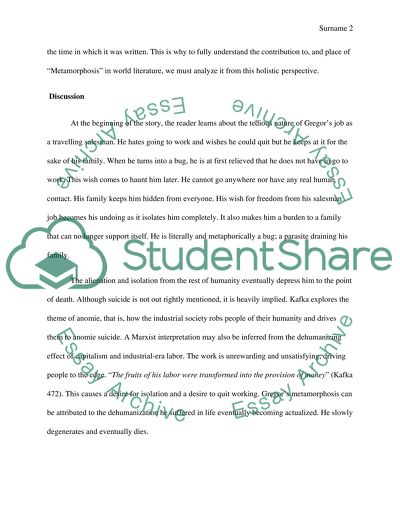Cite this document
(“Marxist Themes and the Loss of Humanity in Kafka's The Metamorphosis Research Paper”, n.d.)
Retrieved from https://studentshare.org/literature/1447235-the-metamorphosis-by-franz-kafka
Retrieved from https://studentshare.org/literature/1447235-the-metamorphosis-by-franz-kafka
(Marxist Themes and the Loss of Humanity in Kafka'S The Metamorphosis Research Paper)
https://studentshare.org/literature/1447235-the-metamorphosis-by-franz-kafka.
https://studentshare.org/literature/1447235-the-metamorphosis-by-franz-kafka.
“Marxist Themes and the Loss of Humanity in Kafka'S The Metamorphosis Research Paper”, n.d. https://studentshare.org/literature/1447235-the-metamorphosis-by-franz-kafka.


